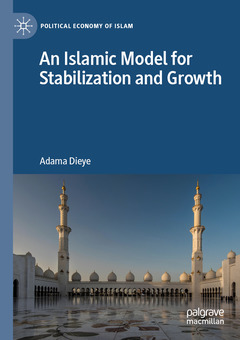Description
An Islamic Model for Stabilization and Growth, 1st ed. 2020
Political Economy of Islam Series
Author: Dieye Adama
Language: English
Subject for An Islamic Model for Stabilization and Growth:
An Islamic Model for Stabilization and Growth
Publication date: 07-2021
243 p. · 14.8x21 cm · Paperback
Publication date: 07-2021
243 p. · 14.8x21 cm · Paperback
An Islamic Model for Stabilization and Growth
Publication date: 07-2020
243 p. · 14.8x21 cm · Hardback
Publication date: 07-2020
243 p. · 14.8x21 cm · Hardback
Description
/li>Contents
/li>Biography
/li>Comment
/li>
This book argues that the macroeconomic policy adjustment models recommended by the IMF and the World Bank for implementation in many Muslim countries, with substantial donor financial support, have not been effective. Economic indicators show low economic growth, persistent fiscal and external deficits and limited industrialization. Also, these countries are experiencing increases in unemployment, poverty and substantial growth in income and wealth ?inequalities. These facts ?underline an urgent need to produce an alternative to the failed conventional macroeconomic model in order to address the challenge of ?macroeconomic and social adjustment policies. The project posits and investigates the idea that the Islamic economic model prescribed in the Quran and applied by the Prophet (sawa) could be the ideal model for Muslim as well as non-Muslim ?countries.
Introduction.- Overview of Current Macroeconomic Policy Issues and Challenges In Mainstream Economics.- Current Economic and Social Challenges and Islam.- Islamic Institutional Policy Framework.- Rules of Economic and Financial Operations.- Sustainability of the Senegal Socio-economic Model.- Counterfactual simulation of the Islamic model for Senegal.- Implementation of the Islamic Model for Senegal.- Conclusion.
Adama Dieye is former Director of Department of the Central Bank of West African States (BCEAO), Senegal.
Argues that the macroeconomic policy adjustment models recommended by the IMF and the World Bank for implementation in many countries have not been effective Underlines an urgent need to produce an alternative to the failed conventional macroeconomic model in order to address the challenge of ?macroeconomic and social adjustment policies Investigates the idea that the Islamic economic model prescribed in the Quran and applied by the Prophet (sawa) could be the ideal model for Muslim and non-Muslim ?countries Designs a macroeconomic policy framework that recommends macroeconomic and social policies consistent with Islamic economic principles and simulates its relevance with Senegal as a case study
© 2024 LAVOISIER S.A.S.




